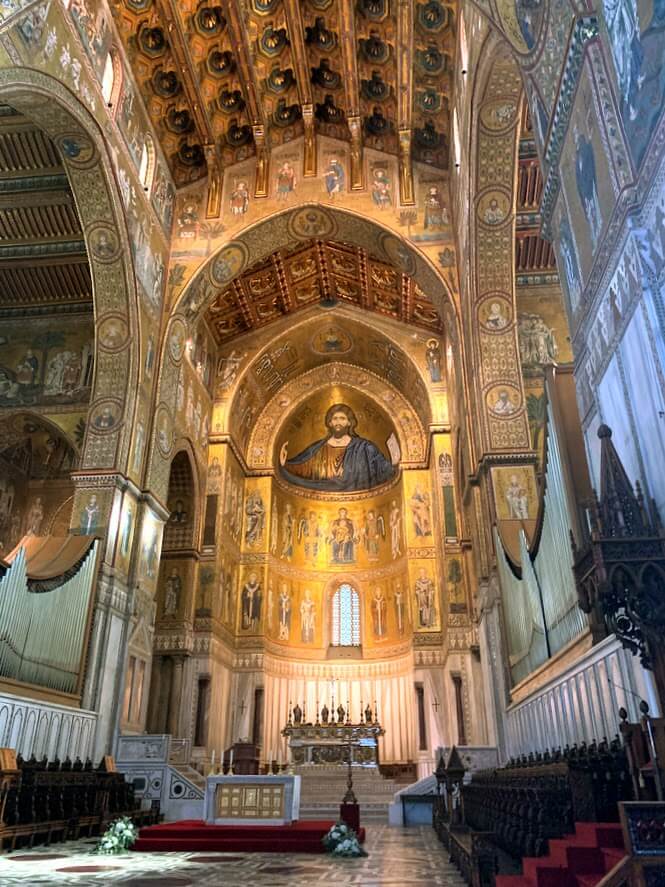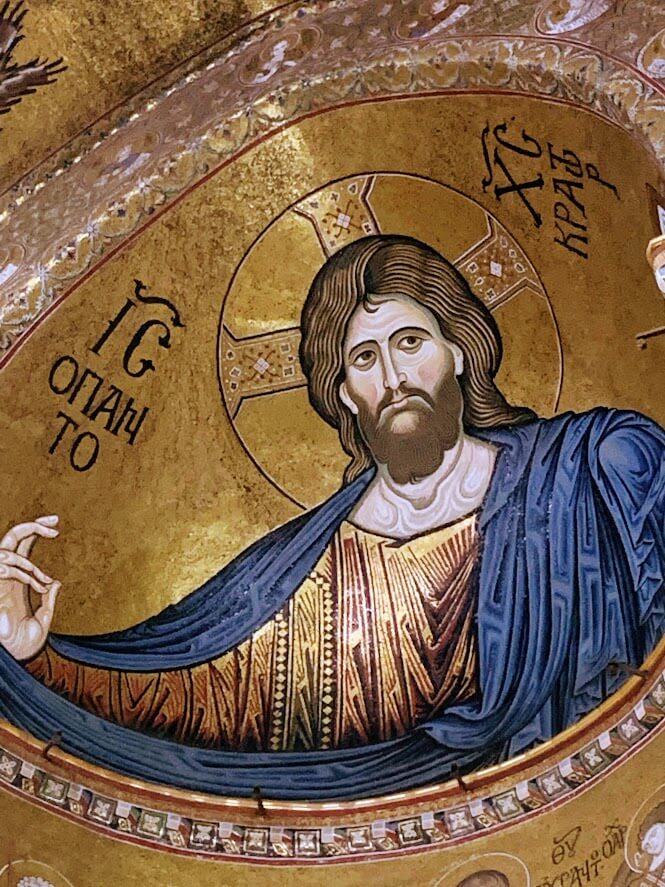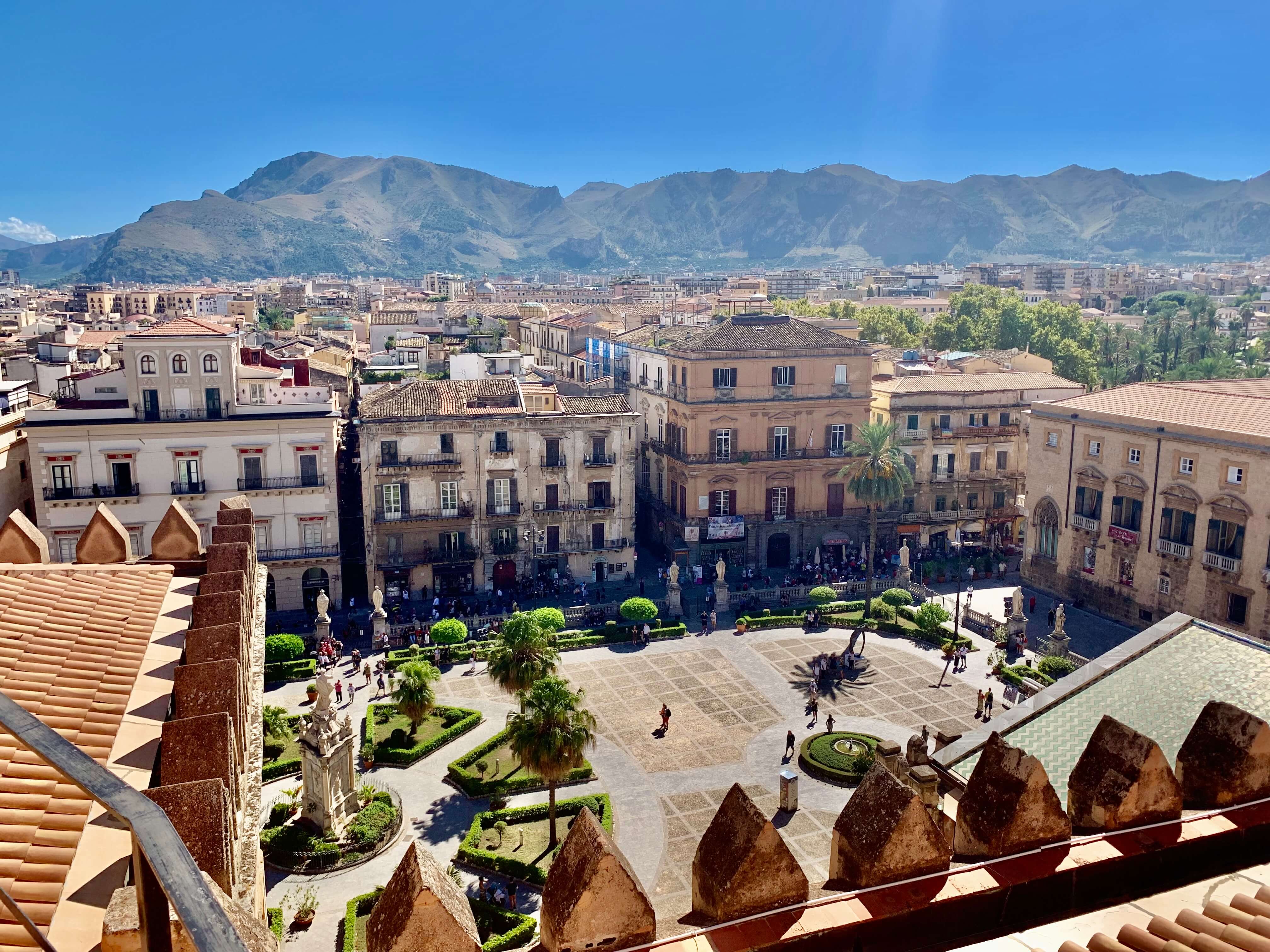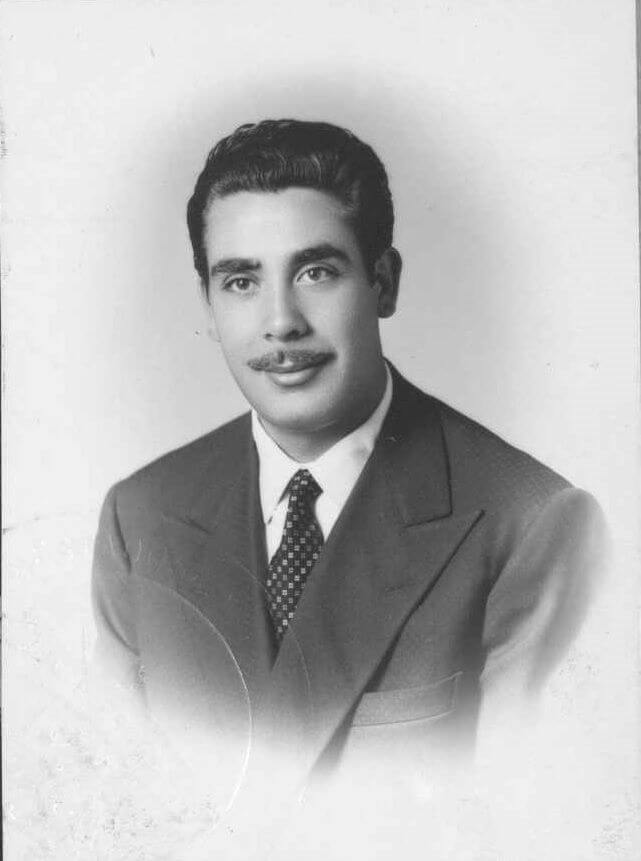- Home
- Things to Do in Sicily
- Arab-Norman Palermo
- Monreale Cathedral
Monreale Cathedral: its Fascinating History From Norman Conquest to today's iconic landmark
It's just a short bus ride from Palermo to Monreale Cathedral. And believe me, it's worth it.
Monreale Cathedral is one big masterpiece of medieval architecture. Visitors have admired its mosaics, stone carvings, and arches for centuries.
Beyond its beauty lies a history that spans from the Norman conquest of Sicily to the present. What started as a humble monastery has become an iconic landmark.
Centuries of political and cultural upheaval have gone by. Monreale has witnessed it all. Today, it remains a testament to the enduring power of art and faith.
Not to mention the skill and inventiveness of its creators.
So join me as we explore the incredible story of Monreale Cathedral and discover why it remains one of Sicily's most cherished treasures.
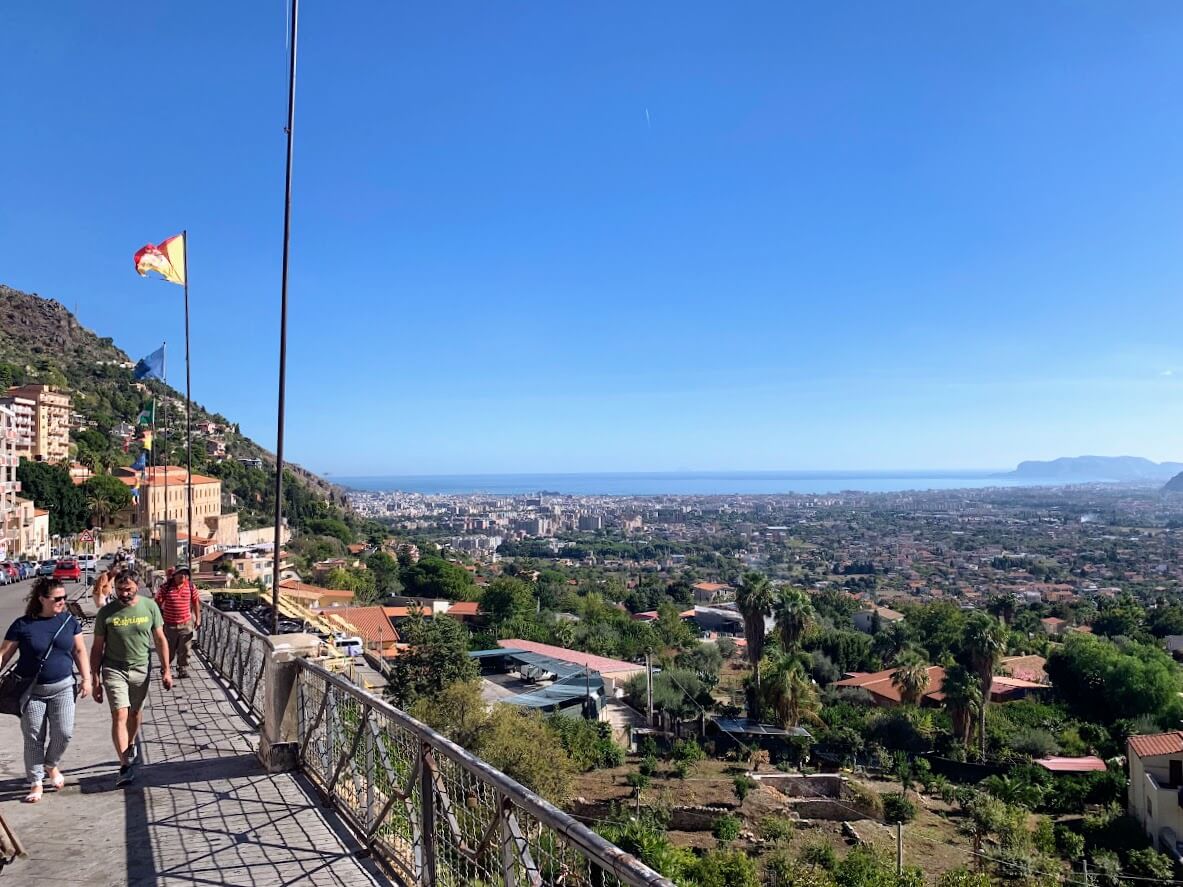 The road leading from Palermo to Monreale. Near the coast, you can see the center of Palermo.
The road leading from Palermo to Monreale. Near the coast, you can see the center of Palermo.The Normans and the Conquest of Sicily
The story of Monreale Cathedral starts with the Norman conquest of Sicily.
The Normans, a group of Vikings, had settled in Normandy, France. There, they learned statesmanship and converted to Christianity. Military skills they already had.
From there, they migrated to southern Italy. First, they were called there as mercenaries, but slowly, they turned into a force of their own.
By the 11th century, the Normans had conquered Puglia and Calabria. Sicily soon followed.
In 1071, the Norman nobleman Robert Guiscard led an invasion of Sicily. Over the next several decades, the Normans gradually gained control of the island.
In 1130, Norman king Roger II was crowned king of Sicily. The Muslim Saracens had turned Palermo into the island's capital, and Roger picked up where they had left off.
The Founding of Monreale Cathedral
In 1174, William II, the grandson of Roger II, decided to build a new cathedral to rival the great churches of Europe. He chose a site on a hill just outside Palermo, overlooking the city and the sea.
The cathedral was dedicated to the Virgin Mary. It was to be the centerpiece of a new monastery of the Benedictine order.
The cathedral's construction took 15 years, which is very short compared to other similar structures. The Duomo of Pisa, for example, took over a hundred years to build.
Initially, there was a monastery and a palace around it. Now, they are long gone. However, the town that grew up around them continues to exist. Monreale is currently home to 30,000 people.
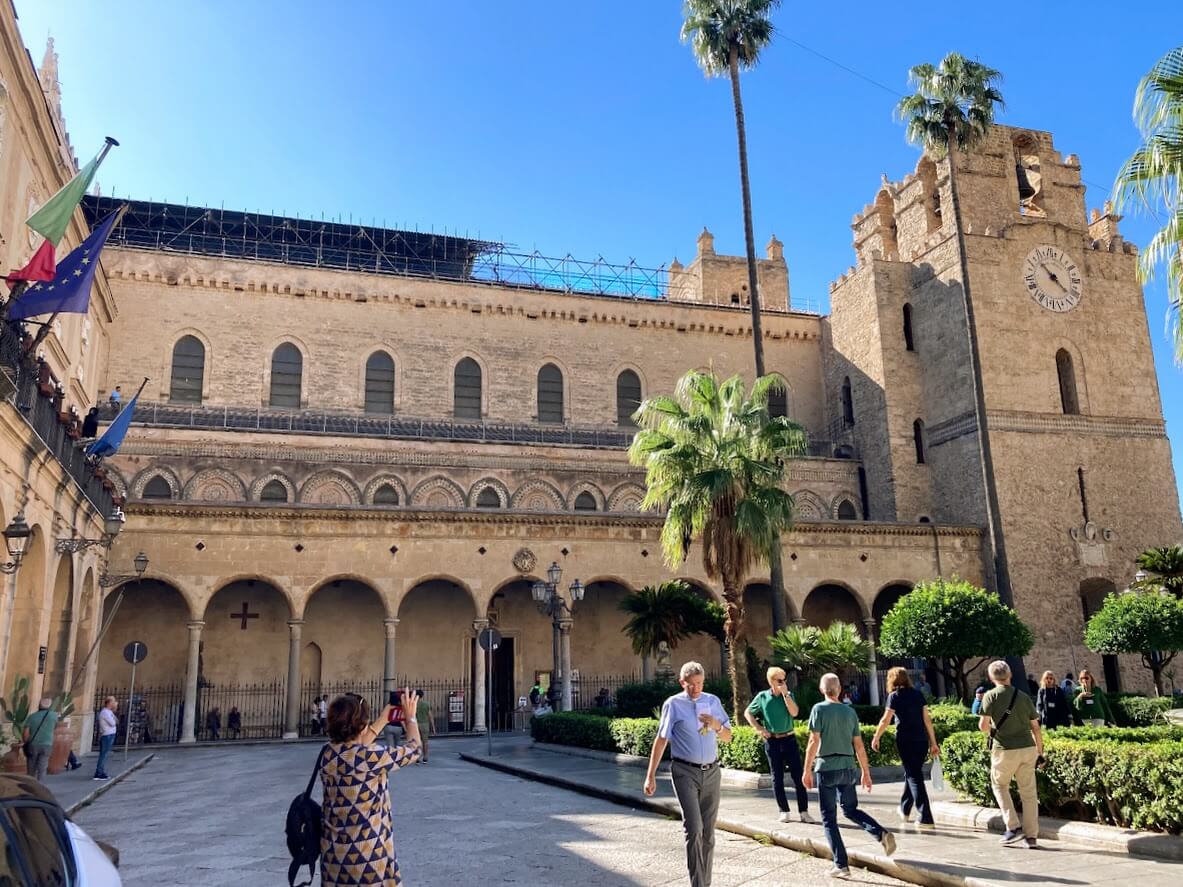 In front of Monreale Cathedral.
In front of Monreale Cathedral.The Architecture and Decoration of the Cathedral
The architecture of Monreale Cathedral is a blend of Norman, Byzantine, and Arab styles.
The exterior is relatively plain. Like many Norman churches, it looks like a cross between a church and a fortress. One of the two bell towers was never completed.
The interior is a true masterpiece in decoration and design.
But before entering, look at the doors. Bonnano Pisano, the gate's builder, is better known for the Leaning Tower of Pisa, which he also built. The engravings on these great doors are based on biblical stories.
But yes, the real masterpiece waits in the interior. The walls and ceilings of the cathedral are covered in golden mosaics. This 335-foot-long and 130-foot-wide basilica has about 2 tons of gold on its walls.
The mosaics depict scenes from the Bible and the lives of the saints. Around the top of the nave, a story of Genesis runs like some very expensive silent comic.
And then there's the "All Ruling Christ" in the style of the Eastern Orthodox Church. An example of Norman's ability to cooperate with different religions.
In fact, the whole cathedral bears witness to this collaboration with three distinct cultures: the Norman, the Byzantine, and the Arab. This reflects the Sicilian culture of the time.
The marble columns supporting the church date back to ancient Rome. The Pope sent them from Rome - probably to remind people that he, too, was still there.
The roof was struck by lightning and burnt down in the 19th century. It is thus later work.
The Role of Monreale Cathedral in Sicilian History
The Monreal Cathedral symbolized Norman power in Sicily and displayed the Normans' wealth and piety.
From the beginning, Monreale Cathedral also served as a center of religious and cultural life, attracting pilgrims and visitors alike.
After the Norman occupation, the cathedral served its purpose under several monarchs. Eventually, political instability and wars on the island led to its decline.
By the 17th century, Monreale Cathedral was badly in decay. The mosaics had been covered or had otherwise deteriorated.
The Cathedral's Decline and Restoration
Restoration work on Monreale Cathedral began in the mid-1800s and 1900s.
The restoration was no small task.
First, the durability of the structures had to be established. Then came the cleaning of the site.
It also took meticulous research to determine what the cathedral initially looked like. Only then could the construction of the structures begin.
The mosaics were restored by top artisans.
All this, of course, took a long time.
The reward for the hard work came in 2015 when Monreale Cathedral became a UNESCO World Heritage Site.
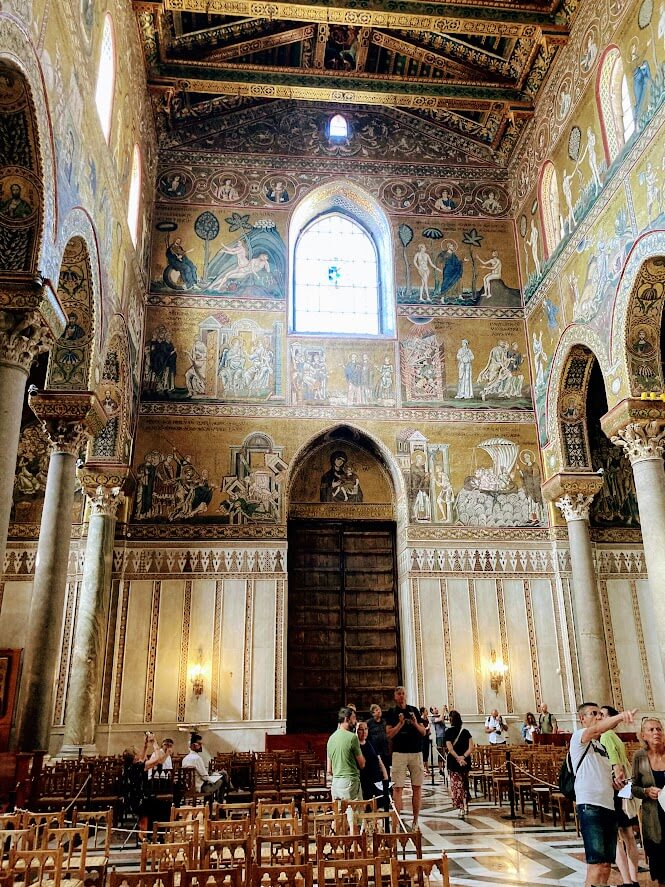 The cathedral walls are decorated with stories of events from the Bible.
The cathedral walls are decorated with stories of events from the Bible.Visiting Monreale Cathedral - What to See and Do
Monreale Cathedral is one of the main things to see and do in the Palermo area. And in Sicily in general.
It is open to the public every day. (Check the opening hours here.) For a small entrance fee, you can marvel at many things.
The cathedral is accessible to visitors with mobility issues, with ramps and other facilities in place to ensure a comfortable visit.
The large cathedral is full of little details to wonder about. For those interested in history, a recorded guided tour is available.
A museum is also attached to the cathedral where you can learn about the place's history. The museum houses a collection of artifacts and exhibits that provide a comprehensive overview of the cathedral's history and significance.
Although the town of Monreale is not very big, it is still worth a look. Nearby the cathedral are many small boutiques, eateries, and cafés.
Conclusion - Monreale Cathedral's Enduring Legacy
Monreale Cathedral is more than just a beautiful building; it is a testament to the power of art, faith, and human ingenuity.
It embodies centuries of history and cultural change.
Today, Monreale Cathedral remains one of Sicily's most cherished treasures. Its mosaics and architecture, a testament to human creativity and skill, inspire awe and wonder in all who visit.
It also reminds us of the enduring legacy of the Norman dynasty, a period of significant historical and cultural change from which we can learn much even today.
See Also:
(This page last edited: December 24, 2024.)
Recent Articles
-
Sicilian Food - Rich Flavors, Endless Passion
Apr 09, 25 09:54 AM
All you need to know about Sicilian food, its ingredients and history. -
Things to Do in Palermo - Tips for a Perfect Holiday
Apr 05, 25 04:27 AM
Things to Do in Palermo - From historic landmarks to delicious food, this guide has it all. -
The Story of Tommaso Buscetta: From Mafia Boss to Key Witness
Mar 30, 25 05:12 AM
Tommaso Buscetta built Sicilian Mafia into a global empire - which he then destroyed.
Follow MANY FACES OF SICILY on Facebook, Instagram, Bluesky & Pinterest
Contact: vesa@manyfacesofsicily.com
